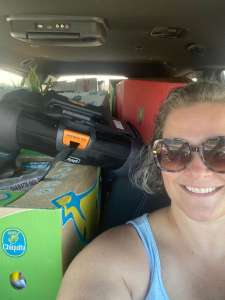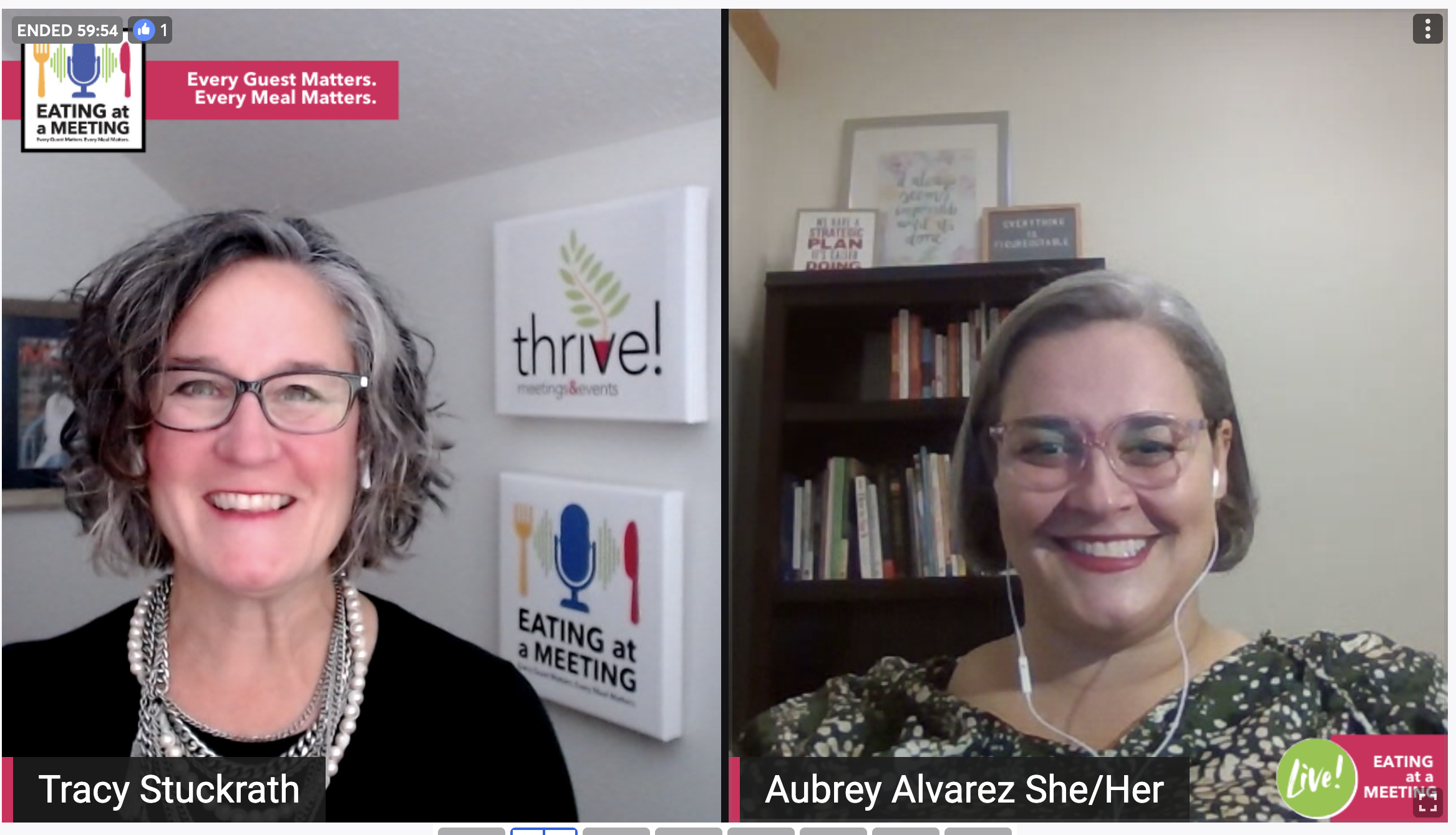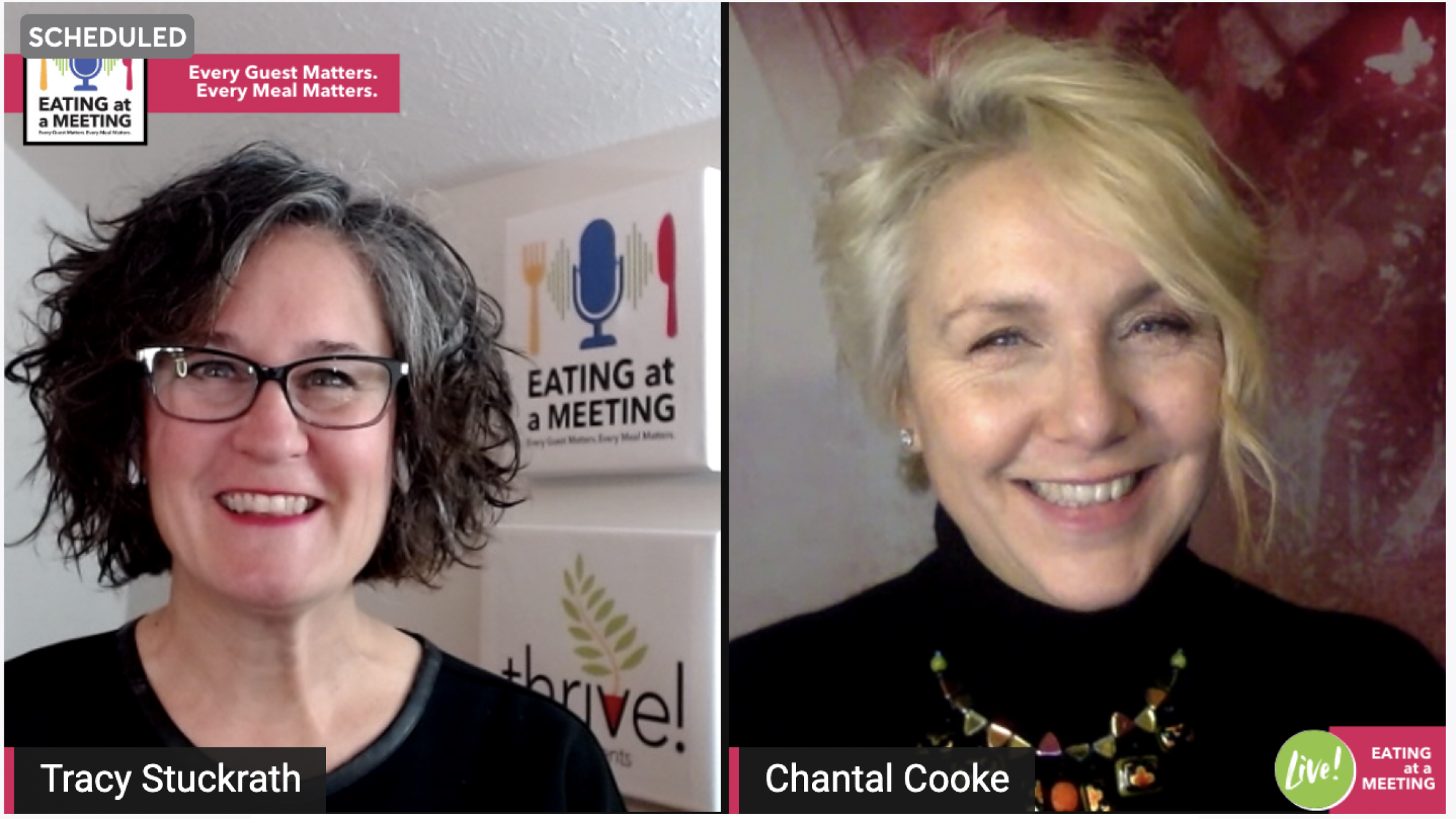Food Rescue: How & Why its Necessary
Eating at a Meeting Podcast Episode #171
 Food Rescue is about Gathering Extra Food to Feed Hungry People
Food Rescue is about Gathering Extra Food to Feed Hungry People
Event Professionals from across the country have told me on many occasions — and I’ve personally experienced it — that event venues refuse to rescue and donate leftover, untouched food due to concerns about food safety.
One planner even shared that a hotel told his organization, “Don’t make us do this,” in spite of the fact that their catering contract stated all remaining, untouched food would be donated after they rescue it from the kitchen.
Aubrey Alvarez, Executive Director of Eat Greater Des Moines, has experienced this herself, but that does not stop her. She continues to connect nonprofit organizations, businesses, and community leaders to work to strengthen the food system in Des Moines and make sure no food goes to waste.
Winner of “Iowan of the Week” in 2021 for her team’s efforts in distributing almost 90,000 food boxes via one of the organization’s most significant projects, “Operation Fresh Produce Drop,” Aubrey is committed to ensuring the people of Des Moines don’t go hungry and that they have access to fresh and healthy foods
Listen as Tracy chats with Aubrey about how people (e.g. #MeetingProfs) can get involved locally to help feed their community, what food can and cannot be donated, and innovative ways she sees improved food access in her community.
While there are many individual properties that donate regularly, there are still thousands that do not.
It’s time for the Meetings And Events industry changes its policies to ensure we are rescuing and donating food that would otherwise be thrown away.
Aubrey told me, “we have enough food for everyone. The amount of food thrown away could feed all food insecure folks multiple times.”
Aubrey Alvarez
Aubrey is the Co-founder and Executive Director for Eat Greater Des Moines in Des Moines, Iowa. Eat Greater Des Moines was founded in 2013 to support people and projects that move our food system forward for everyone.
What do safe, sustainable, and inclusive food and beverage experiences look like to you?
Everyone leaves feeling cared for, considered, valued, AND all the extra food and swag has a home.
Do you have an example of a situation that negatively affected you and/or other individuals or groups’ food and beverage experience?
My last event for a large, local funder. After speaking to 800+ attendees about how much need there is in the community and awarding large donors for their engagement. After the event, there were 70-80 perfectly good meals leftover. Two funded partners worked to safely collect and package the food to be safely stored and distributed that evening. Not only did the funder not support their partners in work they have funded for years, but the funders were upset that donating the excess food was even brought up because it upset the event location – a casino and one of THEIR big funders. It was really disappointing to see a large nonprofit put money before the mission.
What is a best practice you use/or have seen to create safe, sustainable, and inclusive F&B experiences?
Planning ahead and asking questions.
 What do you wish people knew about what you do?
What do you wish people knew about what you do?
That we have enough food for everyone. The amount of food thrown away could feed all food insecure folx multiple times. Donors have been protected from liability since the Bill Emerson Good Samaritan Act was passed in 1996. Food donors get enhanced tax benefits for donating instead of throwing away food. That hasn’t been enough. Too many organizations and people profit from people being hungry. More can be done. There are good jobs to be had rebuilding our current food system into one that works for everyone. It takes putting people over profits though.
Just for fun…What are your favorite food and drink?
Favorite food – tacos
Drink – soda water
Links:
Connect with Aubrey: Website | Facebook | Instagram | LinkedIn
Check out other featured guests on the Eating at a Meeting podcast
Eating at a Meeting is part of the Nitty Grits Podcast Network.



